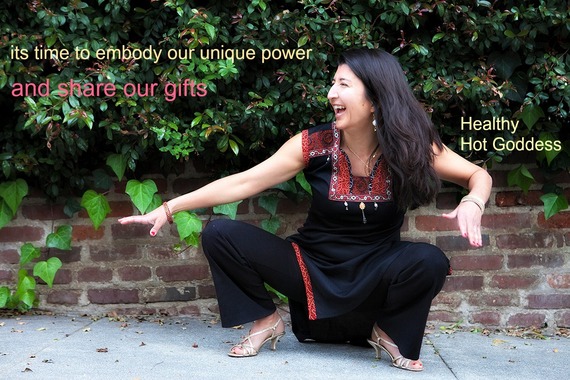What is the difference between feminine and masculine power?
Last week, we spoke about how true self care requires paradigm shift in terms of power.
We need to redefine power for complete wellness to be possible for individuals and society.
We all have, and can cultivate, both kinds of power. Do you have more masculine or feminine power?
Our schools, society, workplaces and even families often over-use one of these types of power. After being around one style of power it is natural that perhaps we ourselves are imbalanced.
The first step to rebalancing is to identify which energy and power is excessive and which is lacking in our lives. Part of the yogic path is svadhyaya, or self-study.
Let's explore what these two types of power look like so we can better see what types of power we are shaped by and using.
Feminine Power is not about making things happen.
"It's about allowing things to flow and unfold."
Qualities of feminine power:
•Lunar energy
•Slow, contemplative
•Allow
•Compassion
•Nurture
•Rest
•Receive
•Share
•Soft
Shakti (feminine power)
Masculine Power is about getting it done. "Make it happen. Do it."
Qualities of masculine power:
•Solar Energy
•Fast, active
•Make it happen
•Action
•Challenge
•push
•Give
•Compete
•Hard
•Shiva (masculine power)
How do these masculine and feminine energies play out in terms of power?
Feminine power is about sharing, partnership and respect. Power is cultivated and wielded internally. It is a quality or state of being. It respects all forms of life, even the "enemy" or aggressor. Feminine power is shared with others. Qualities of empathy and understanding are cultivated and shared strongly. It is not a passive, but active and creative force in the world. Vulnerability and forgiveness give the power to transform oneself, another and the situation.
Feminine power seeks to resolve conflict, create win-win situations and to end cycles of violence through healing and restorative justice. For feminine power all beings have something to offer and all types of expressions are powerful.
Masculine power often involves power over others and at it's most extreme exerts domination and control. Masculine power is external in its forms and how it is recognized, such as a degree, title, or station. Masculine power seeks dignity and respect for one side of a struggle only, creating a situation where there is a winner and other losers.
Masculine power often escalates conflict. During conflict, scapegoating can lead to dehumanization, such as in war or ugly political struggles. Masculine power often continues a vicious cycle of violence because the cycle has not been transformed or broken, such as in our criminal justice system where the cycle itself clearly perpetuates the violence it seeks to end. For masculine power some beings, leaders or heroes are elevated as important while other beings may be expendable. Masculine power is strong and never vulnerable.
Examine these power structures and notice where our life and our dominant energy lies.
Is our vocation more masculine or feminine in energy and power? Our home life? Relationships? Family? How about how we care for and talk to ourselves?
Where are we balanced or off balance in one direction or the other? This inquiry can have profound impact.
If we notice that we are imbalanced we can address it. Most of our society promotes imbalance so instead of going out of harmony ourselves we can cultivate more qualities we need.
Since our society is more masculine power heavy, it is for this very reason that feminine power is so needed for health and wellbeing for individuals, families, workplaces, communities and society today. This is not about gender. People of all genders can wield power that is masculine or feminine.
"Shakti is not a power asserted against something but a power that enlivens everything from within," says Vedic scholar Dr. David Frawley.
Now, we will explore an ancient wisdom practice to balance both sides.
You can do this sitting at your desk, in public or private. You don't need anything other than your ability to breathe.
Here's one transformative way to balance the feminine and masculine energies in ourselves.
Sit comfortably and let your hands drop into your lap.
As you read this, allow your attention to move with the breath as it flows in and out of your nose. Allow your face and your belly to soften.
Notice all the points of contact where your body connects to the chair, sofa, earth. Let your muscles soften into the support, while your skeletal structure raises steady and keeps the spine straight and elevated.
Bring your attention to your breathing. Envision the breath moving in through your left nostril and out through the right nostril. Now breathe back in through the right nostril and out through the left nostril. Keep up this breathing pattern gently, even if it feels like you are imagining it.
This is a practice called alternate nostril breathing or nadi shodhana. It balances the left and right sides of the body, the lunar and solar energies and the feminine and masculine power within us.
In left, out right.
In right, out left.
Continue this cycle at least nine times, ending where you started, breathing out on the left side.
When we are out of balance we can feel stressed, tense, aggravated, lethargic or lazy.
Bringing our energies into balance can go a long way towards creating greater harmony, happiness and health in our mood and lives.
Notice how you feel after completing this balancing, harmonizing breath. As you go through your day and week bring awareness to the qualities of power that you encounter. Notice what types of power you use as well.
I want to thank Rianne Eisler for her conceptions of power-with and power-over that have greatly influenced my thinking on power for over 15 years.
In the next few weeks I'll be sharing about how to cultivate feminine power both here and in two powerful workshops taking place in July in LA. We will learn how to cultivate, be and live as divine feminine power, or what yogis call Shakti. We will explore how to cultivate our own unique Shakti powers.
Learn step-by-step methods and take away tools to cultivate, be and live more of your feminine power.
We will explore how to cultivate our own unique Shakti powers.
Be powerful & be well,
Susanna Barkataki




